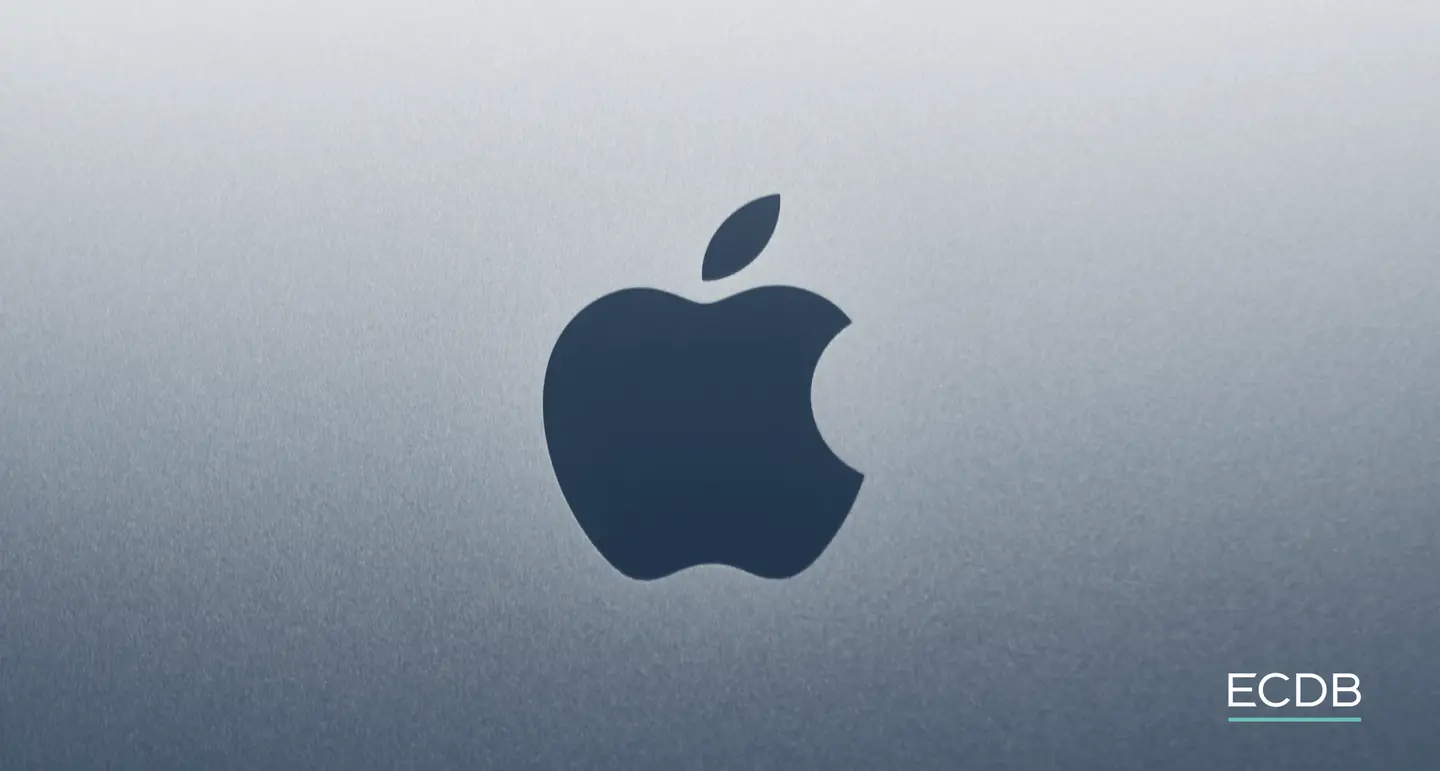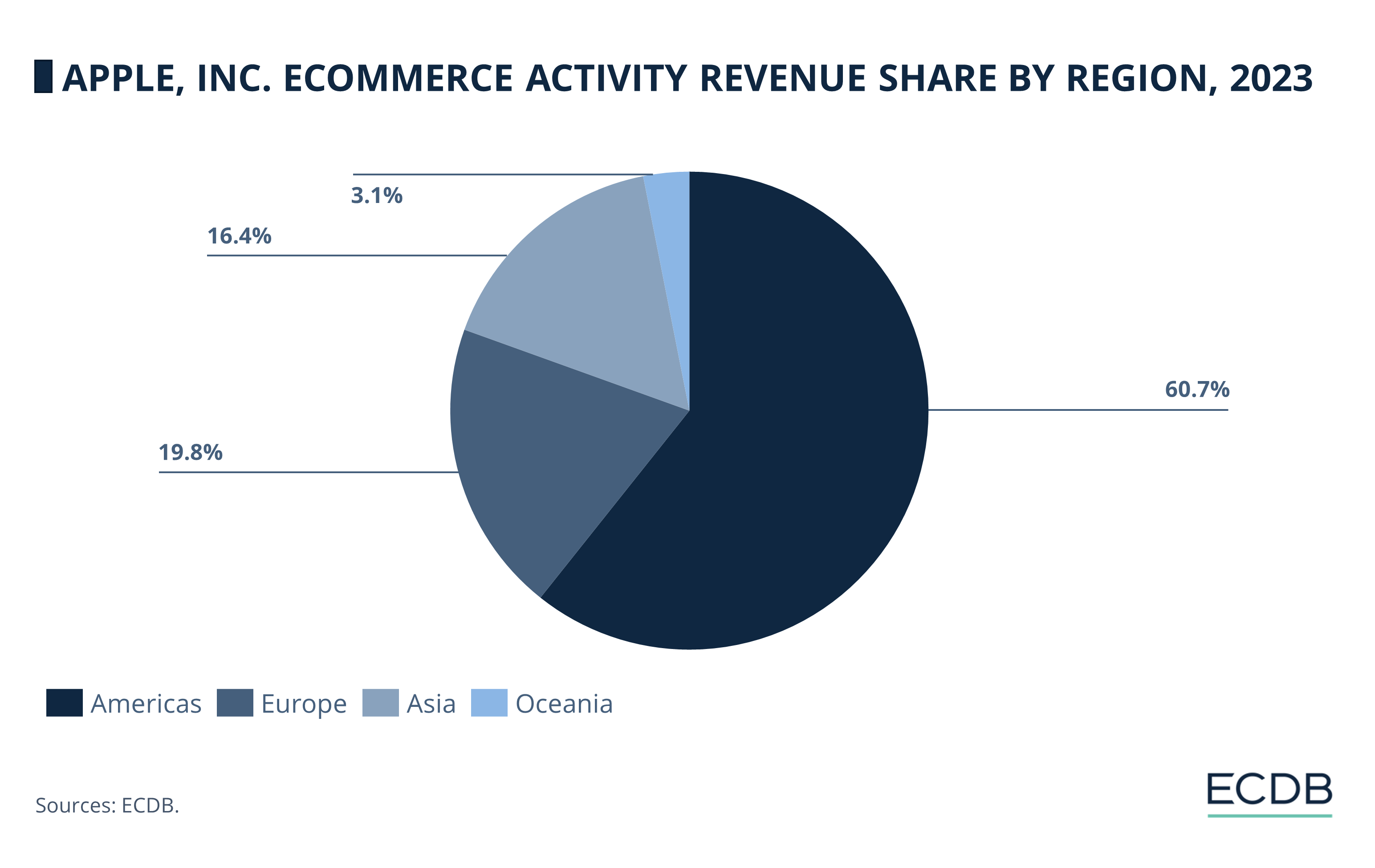eCommerce: Apple
Apple Ordered to Pay €13 Billion in Taxes by EU Court: Impact on eCommerce Strategy
Apple's €13 billion tax ruling by the EU Court could impact its eCommerce strategy, potentially shifting resources away from online retail growth and innovation.
Article by Cihan Uzunoglu | September 11, 2024
Apple eCommerce Business Strategy: Key Insights
Tax Ruling's Financial Impact: The European Court of Justice's decision requiring Apple to pay €13 billion in back taxes to Ireland could redirect resources away from its efforts to expand online retail operations.
Strained eCommerce Growth: With the court upholding the substantial tax penalty, Apple faces increased financial and regulatory challenges in Europe, putting its eCommerce strategy under new strain.
Adapting to Regulatory Pressures: To mitigate the effects of the tax ruling, Apple may need to reconsider its pricing or develop alternative revenue streams, while heightened scrutiny in Europe and beyond could hinder its future eCommerce growth.
The European Court of Justice’s ruling that Apple must pay €13 billion (US$14.3 billion) in back taxes to Ireland marks a significant financial blow to the tech giant, potentially affecting its broader eCommerce strategy.
With the ruling concluding a decade-long legal battle, the required payment could divert resources Apple might have otherwise allocated towards its growing online retail operations.
Apple’s Legal Battle with the European Union
Apple’s eCommerce strategy may face substantial financial strain, as the ruling imposes an unexpected burden on the company.
The ruling stems from the European Commission's 2016 decision, which found Apple had received "illegal" tax benefits in Ireland over two decades. Apple and Ireland challenged the ruling in 2019, and in 2020, the EU's General Court sided with Apple. However, the European Commission appealed, leading to the latest decision by the European Court of Justice, which has now upheld the original ruling.
Apple’s dependence on the European market is not to be underestimated:

As per ECDB data, Europe accounts for almost a fifth (19.8%) of Apple, Inc. eCommerce activity revenue.
Making up 60.7% of the company’s eCommerce revenue, Americas is the top region for Apple.
While Asia brings in a significant 16.4%, Oceania is only at 3.1%.
This financial hit comes at a time when Apple is already grappling with growing regulatory challenges in Europe, including the Digital Markets Act (DMA), which forces major tech companies to change their market practices in the region. With this tax ruling, Apple faces a growing list of financial and legal challenges that could divert its focus and resources from key areas like eCommerce growth and innovation.
What Does This Mean for
Apple’s eCommerce Business?
While this news is unlikely to halt Apple's aggressive expansion in digital sales, the ruling underscores the growing regulatory pressures tech companies face in Europe, including in areas like data protection and antitrust enforcement.
Stay Informed: Our rankings are continuously updated with the newest data from our models, offering valuable insights to enhance your business strategy. Curious about which stores and companies are at the forefront of eCommerce? Want to know which categories are leading in sales and popularity? Discover the answers in our rankings for companies, stores, and marketplaces. Keep ahead of the competition with ECDB.
The question remains whether Apple will need to adjust its pricing strategies or introduce new revenue streams to offset the substantial tax burden. If Apple passes these costs onto consumers, it could impact its pricing flexibility in an already competitive online market.
Moreover, this ruling might prompt other jurisdictions to scrutinize Apple’s tax strategies, potentially leading to more financial penalties or increased taxes in other regions. Such developments could slow Apple's international eCommerce growth as the company navigates legal and financial hurdles while also dealing with rising competition in its core markets.
Sources: CNBC, ECDB

Click here for
more relevant insights from
our partner Mastercard.
Related insights
Deep Dive
Walmart Passes Apple as Amazon’s Lead in U.S. Online Store Ranking Diminishes
Walmart Passes Apple as Amazon’s Lead in U.S. Online Store Ranking Diminishes
Deep Dive
Top Online Stores in Europe: Amazon Accounts for 40% of Top 20's Sales
Top Online Stores in Europe: Amazon Accounts for 40% of Top 20's Sales
Deep Dive
Online Shopping in the United States: Where Consumers Prefer to Shop Online
Online Shopping in the United States: Where Consumers Prefer to Shop Online
Deep Dive
Top Online Payment Methods in the United Kingdom: Cards & eWallets
Top Online Payment Methods in the United Kingdom: Cards & eWallets
Deep Dive
Inside Apple Revenue: Latest Sales Figures and Key Insights
Inside Apple Revenue: Latest Sales Figures and Key Insights
Back to main topics
